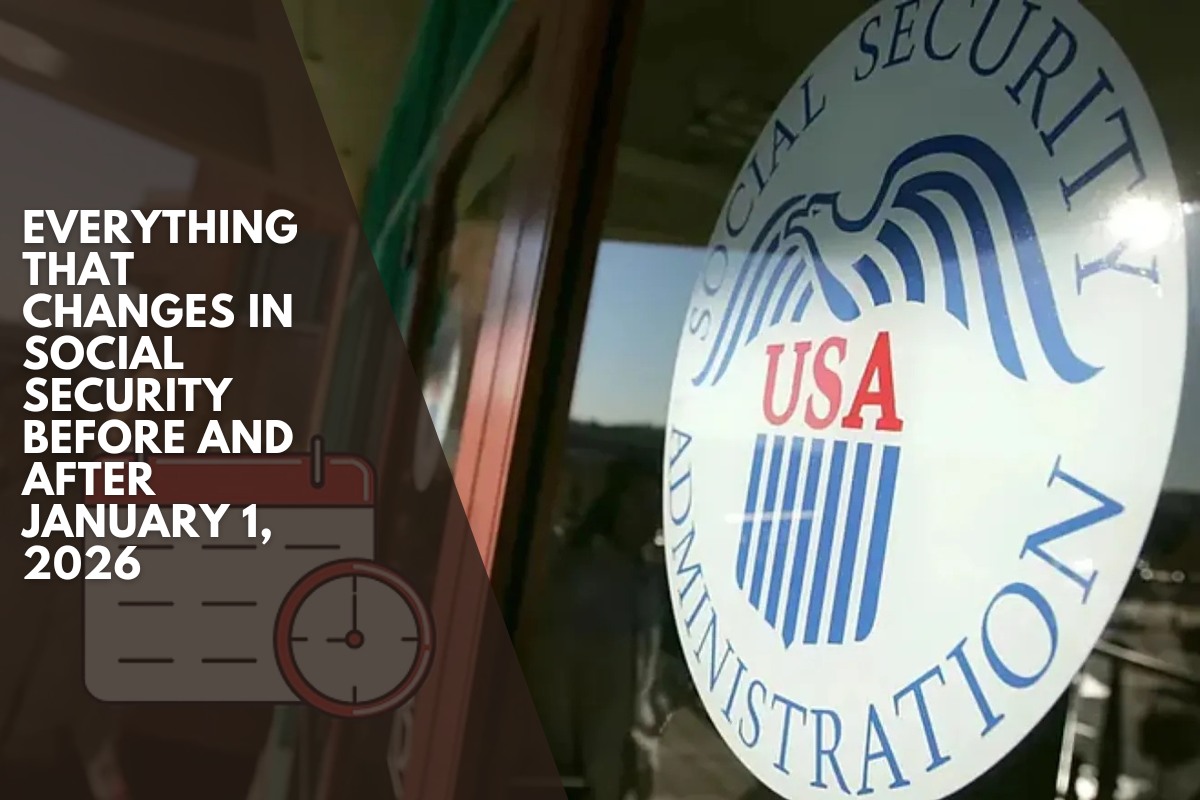Say goodbye to your Social Security benefits – at least if you make these costly mistakes, as certain errors may result in retiree payments being suspended, reduced, or even stopped entirely.
Knowing the rules is critical to protecting your monthly income, and for tens of millions of retirees, Social Security is more than just supplemental income; it is the foundation of financial security in retirement.
Currently, the average monthly benefit for retired workers is just under $2000, and for many households, these checks are the primary source of cash flow after careers end.
Given concerns about the program’s long-term viability, protecting those benefits has never been more important.
However, not all retirees understand that their payments are not guaranteed in all circumstances. Minor changes in personal or financial circumstances can disrupt, suspend, or even terminate monthly payments.
So, understanding the rules and avoiding the most common pitfalls is critical for ensuring consistent income. Here are five common traps to losing Social Security listed below:
Five ways to lose your Social Security benefits
The Social Security Administration (SSA) enforces strict eligibility and payment regulations, and while the program is intended to protect retirees, benefits may be reduced, suspended, or revoked in certain circumstances.
Some of these issues are temporary and can be resolved with proper documentation, while others result in permanent loss of benefits.
The five critical mistakes listed below could cause payments to stop as early as September 2025.
1. Incarceration
Retirees sentenced to more than 30 consecutive days in prison or jail will see their Social Security benefits suspended.
While payments to a spouse or children may continue if they are still eligible, personal benefits are suspended until release.
Supplemental Security Income (SSI) is also suspended during incarceration and permanently terminated if confinement exceeds 12 months, necessitating reapplication upon release.
2. Return to Work While Receiving Disability Payments
Those receiving Social Security Disability Insurance (SSDI) must be aware of earnings limits. If monthly income exceeds the “substantial gainful activity” limit, which is $1,550 in 2024 or $2,590 for blind recipients, the SSA may terminate payments.
Although work incentive programs such as trial work periods exist, consistent earnings above the threshold can lead to permanent suspension.
3. Improvement in Medical Conditions for Disability Recipients
SSDI benefits are contingent on the continuation of a qualifying medical condition. If medical reviews determine that an individual’s health has improved sufficiently to resume substantial employment, benefits are terminated.
Payments typically continue for two months after the termination notice, but unless vocational rehabilitation is applied for, recipients will lose further entitlement.
4. Work Before Full Retirement Age
Choosing to claim Social Security before reaching full retirement age entails risks if employment continues.
The Social Security Administration reduces benefits if annual earnings exceed certain thresholds: $22,560 for those under retirement age in 2025, with $1 deducted for every $2 earned above the limit.
When the full retirement age is reached, the threshold rises to $59,520, with a deduction of $1 for every $3 above that figure.
Earnings do not reduce benefits once you reach full retirement age.
5. Remarriage Affecting Spousal or Survivor Benefits
Ex-spouses who qualify for benefits based on their former partner’s record may lose those payments if they remarry before the age of 60. Similarly, changes in marital status may have an impact on survivor benefits.
In some cases, eligibility can be restored if the subsequent marriage fails, but benefits are not guaranteed when remarried.












